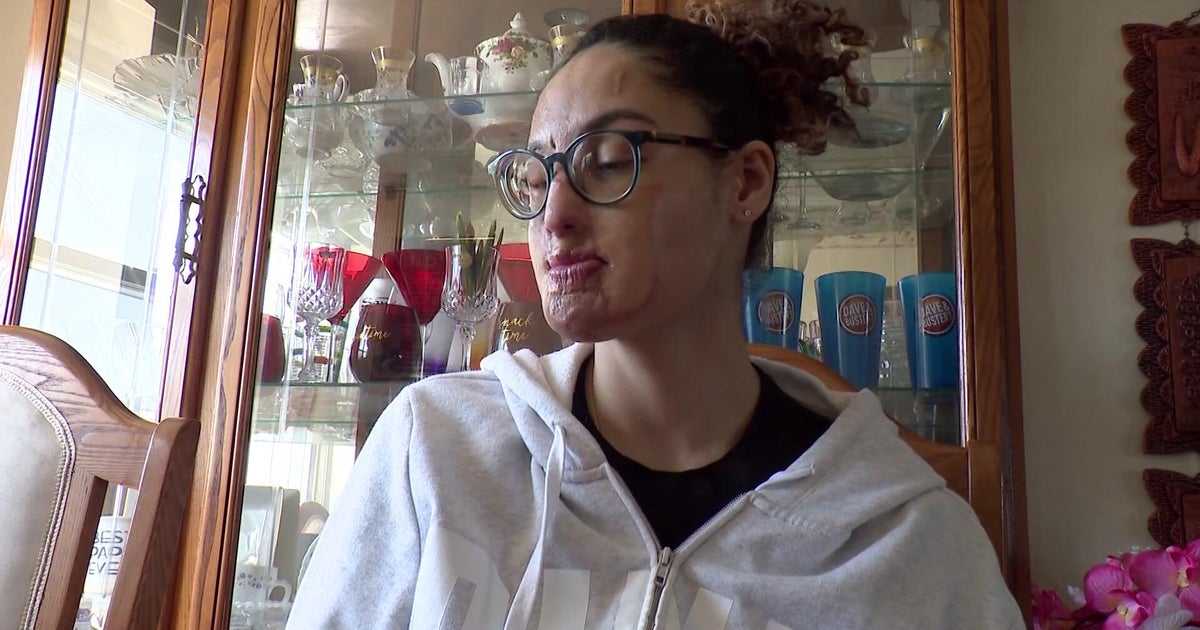Transcript: Gary Cohn on "Face the Nation," March 22, 2020
The following is a transcript of an interview with former National Economic Council Director Gary Cohn that aired Sunday, March 22, 2020, on "Face the Nation."
MARGARET BRENNAN: We go now to the former Director of the National Economic Council under President Trump Gary Cohn. He is back in the private sector now and he joins us this morning from Long Island. Good morning to you.
FORMER NATIONAL ECONOMIC COUNCIL DIRECTOR GARY COHN: Good morning, MARGARET.
MARGARET BRENNAN: We have Congress negotiating the largest economic bailout package, relief package in history. And the Treasury Secretary said this morning that if it doesn't work, they will go back and ask for more money in 10 to 12 weeks.
COHN: Yeah.
MARGARET BRENNAN: This doesn't sound like there is a timeline on the horizon. Can you give me a scale of what kind of economic pain is coming?
COHN: MARGARET, as we've all been talking about, the economic pain is enormous. You know, you think of all the workers that have been forced out of their jobs and- and the economic activity that goes along with that. That is not going on and will not go on any time in the near future. So what Congress is trying to do, and I applaud what they're trying to do, both on the large businesses and the small business, is they're trying to do an income replacement plan. Keep as many people employed and on companies' payrolls as you can and allow them to keep living, allow them to buy their groceries, allow them to buy the drugs and medicine that they need to live their lifestyle, and simultaneously keep them on the books and records of companies. So when the economy does turn around, and it will turn around, people know where they work and they can go back to work immediately instead of going through the whole rehiring process. It would be a shame if we let people go, terminated them, put them on unemployment and then had to try and rehire them once we started the economy.
MARGARET BRENNAN: But despite that, there are expectations and estimates from banks like Bank of America that this week alone, three million people could file for unemployment- ser- unemployment, and that Goldman Sachs, your old firm, says that number is like two and a quarter million. These are massive numbers. What about those people? How do you provide some kind of support?
COHN: So what the bill in Congress is doing, and- and there's two parts to it. There's the Collins-Rubio piece for the businesses under 500 employees. And there's the larger piece for businesses over 500 employees. These are massive, and I mean massive, stimulus packages that are designed to allow companies to borrow money and the loans will be forgiven to keep their employees on the payroll. The people that applied for unemployment last week and that were terminated last week, they were terminated prior to these- this legislation existing.
MARGARET BRENNAN: Right.
COHN: Hopefully once this legislation gets passed, and hopefully it's today or tomorrow, and sooner is better, these people can go back on the books and records of their companies and they can get their payroll. They don't have to go on unemployment. What we're trying to do is keep everyone off unemployment, keep them on the books and records of their companies so they can return back to a normalized economy when it exists.
MARGARET BRENNAN: And we just don't know when that is yet. Part of what it seems like is unaddressed at this point is what happens to all those people who count as- as self-employed who- who are contractors. People who can't necessarily say they're unemployed, but they don't have another paycheck coming. What about them?
COHN: MARGARET, I think that you just hit on a very important topic. And- and I've been talking a lot about this. You know, we've got people that work at big companies. We've got people that work at small companies. And then we've got this big piece of the economy that's either self-employed or contract labor. Think of people that work at stadiums and arenas. Think of people that work in catering businesses. Think of Uber drivers and Lyft drivers. They need to get compensated as well. What I would encourage in the legislation, hopefully this is in there, we go back to those companies that hired part time labor or hired labor as needed. And you go back and look at what you were paying them for the last month or the last two weeks and you go back and pay them that exact amount of money. And those companies can actually go to the two facilities that were created, borrow that money and be relieved of that debt and compensate their people as well.
MARGARET BRENNAN: How long do you think the bailout that's being put together will- will buy us before you see job cuts?
COHN: Well, what they're trying to do, and I applaud this, is not have job cuts. Allow businesses to keep all of their employees on--
MARGARET BRENNAN: Right.
COHN: --the books and records and continue to pay them their salary. That would be the best--
MARGARET BRENNAN: We just don't know?
COHN: --that would be the best outcome. We don't know. If there's any ambiguity, companies are going to act rationally and they're going to cut employees because there can- they're going to constrain their most scarce capital, which is- which is dollars. They're going to hoard dollars, which is the exact wrong thing we want them to do. So what Congress is trying to do right now is the appropriate measure in forcing money in- into businesses and allowing them to keep all their employees on the books.
MARGARET BRENNAN: One of the- the key economic players in this country, a member of the Federal Reserve, one of the presidents, Neel Kashkari told 60 Minutes that they are seeing a freezing up of new financings for corporations. That sounds like when he's looking out there in the marketplace at credit markets, that there is a warning that this could be a financial crisis.
COHN: So remember, the Federal Reserve Bank in the United States is the lender of last resort. And so far they have done an adequate job, but they have done many of the things they need to do. What the Fed needs to do now is they need to expend- expand who can come to the Fed and borrow money and what securities they will take as collateral. So by expanding the collateral window into municipal bonds, bonds issued by states and local governments who are really feeling the crunch here, those are the people paying out some of the medical bills and some of the unemployment insurance and allowing corporate bonds to be pledged at the window as good collateral. We would reopen the corporate borrowing and allow corporates to continue some normal source of economic activity.
MARGARET BRENNAN: Or?
COHN: Or? Or- if we- look, there is no or. We're in a time where we have to go do these things, we have to allow that collateral to be pledged. And I think the Fed will get there. They've been moving fairly- they've been moving very fast--
MARGARET BRENNAN: Yeah.
COHN: --on what they've been doing, they just have to continue to expand what they're doing.
MARGARET BRENNAN: Gary Cohn, thank you for joining us.



